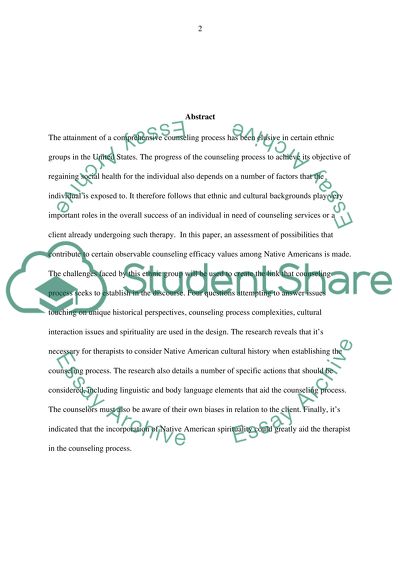Cite this document
(“The Efficacy of Counseling with Native Americans Essay”, n.d.)
Retrieved de https://studentshare.org/other/1427877-the-efficacy-of-counseling-with-native-americans
Retrieved de https://studentshare.org/other/1427877-the-efficacy-of-counseling-with-native-americans
(The Efficacy of Counseling With Native Americans Essay)
https://studentshare.org/other/1427877-the-efficacy-of-counseling-with-native-americans.
https://studentshare.org/other/1427877-the-efficacy-of-counseling-with-native-americans.
“The Efficacy of Counseling With Native Americans Essay”, n.d. https://studentshare.org/other/1427877-the-efficacy-of-counseling-with-native-americans.


